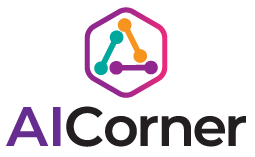Two fields that could be game-changers in the landscape of technology are Quantum computing and Artificial Intelligence(AI), both rapidly evolving. While none of these achievements is considered commonplace by today’s standards, Syntiant believes their confluence will lead to vast and previously unimaginable capabilities as the company looks forward to advanced machine learning. Quantum mechanics meeting high-powered algorithms threatens to redefine what we know about computation, pushing AI capabilities well beyond the current state-of-the-art.
The Promise of Quantum Computing
Paradigms of quantum mechanics are used to bring an advantage in information processing. While classical bits are only in one state or the other, quantum bits (qubits) can be in states 0 and 1 simultaneously — called superposition. When all is said and done, this property can help quantum computers calculate things exponentially faster than classical ones by taking advantage of a concept known as “quantum entanglement.”
Quantum computing has the potential to be world-changing in fields ranging from cryptography to drug discovery. It could be revolutionary for other areas as well, but I believe in a specific manner it will have an especially transformative effect: machine learning and artificial intelligence.
AI and Machine Learning: Current Limitations
Although significant advancements have been made in recent years regarding AI, and more specifically machine learning, there is still a way to go when dealing with complex high-dimensional data sets. Such problems are known as optimization tasks and they have many applications in machine learning (e.g., in training large neural networks or analyzing terabyte-scale data) that classical computers find hard to solve for a very simple reason: there is a huge number of variables involved.
Also, some AI algorithms (especially those in combinatorial optimization) are computationally non-tractable as the problem scales up. This restriction could hurt the progression of developing complex AI models that can solve real-world challenges with high precision and speed.
Quantum Machine Learning: A Paradigm Shift
Quantum Machine learning (QML) — an intersection of two technologies: Quantum Computing and Artificial intelligence, combines the capabilities to circumvent these limitations. QML algorithms use quantum mechanical principles to process data in ways that classical computers can not, this may lead to a fundamental leap forward for ML across the vertical integration:
Quantum algorithms, on the other hand, could potentially provide a powerful speed-up to certain data processing tasks — making AI much more capable of handling larger datasets in an equally efficient period.
Improved Optimization: One of the most common types of problem in machine learning is optimization, which quantum computers are very efficient at solving. This will result in training intermediate neural networks and use for other AI models more efficiently.
Feature Selection: With the use of quantum algorithms it may become faster and easier to identify which features are important in high-dimensional data, leading not only to a better performance but also interpretable AI models.
A quantum computer could be used to run completely novel machine learning algorithms, the creation of which may ultimately benefit from techniques that have no classical counterpart.
Potential Applications and Impacts
This combination of quantum computing and AI can change (disrupt) many industries:
Drug Discovery: Quantum machine learning can be used to model complex molecular systems more accurately and, potentially, accelerate the discovery of new drug candidates.
Financial Modeling: QML algorithms might help with advanced risk assessment and portfolio optimization strategies in finance.
Climate Modeling: The predicting of weather is the mathematical and statistical study or we can say climate modeling, At a more advanced level greater computational power could result in better Climate models,… which will help to predict and minimize the effects due to stakeholders.
Cryptography: Quantum computing threatens known encryptions but presents a possibility of new and safer quantum encryption algorithms.
Personalized Medicine: QML might allow to analysis of genetic data in a more detailed way, offering individual treatment conclusions.
Challenges and Considerations
Growing as it is, quantum machine learning has challenges to face:
Hardware Limits — Today’s quantum computers are still in the early days, with a low number of qubits and high error. Building these systems grows into a big technical challenge as we scale upwards and want the parts to still work well together.
Research Challenges with ML algorithms: Developing quantum analogs of machine learning (ML) algorithms that work well in practical comparison to their classic counterpart.
Data Encoding: efficiently encoding classical data into quantum states and reading out quantum results remain challenges.
Ethical issues: Like any other powerful technology, the ethical concerns associated with quantum AI and its unforeseen impacts on privacy as well as security.
The Road Ahead
The interchange of quantum computing and AI is the subject of a new frontier with promise. We should expect to see more and more pragmatic applications of quantum machine learning as quantum hardware advances, combined with innovation in new algorithms.
From research institutions to tech giants and startups — all are exploring AI for its revolutionary applications. In actionThere is no question that progress from the current limitations requires collaborations between quantum physicists, computer scientists, and AI researchers.
Even if fully-fledged quantum AI is still a few years off, the progress being made will push back on what can be technology in terms of computation and artificial intelligence. Standing on the threshold of a new age, what is certain now is that quantum computing meets AI head-on and confronts us not only with new technologies but ultimately with our understanding of intelligence itself. ~
We are just on the cusp of this journey into a quantum AI future, and as with entering any other new world, speculation is rampant over what might or could be. As researchers work to harness the extraordinary power of this harmonious union, we have much to look forward to a future where what was once inconceivable is now commonplace and an exploration into untouched territories for science and human understanding.

